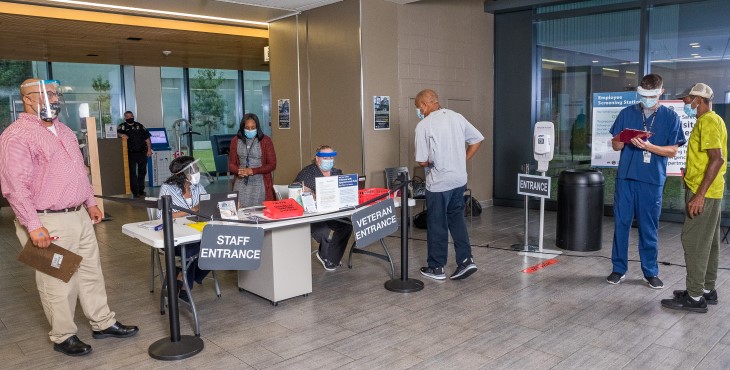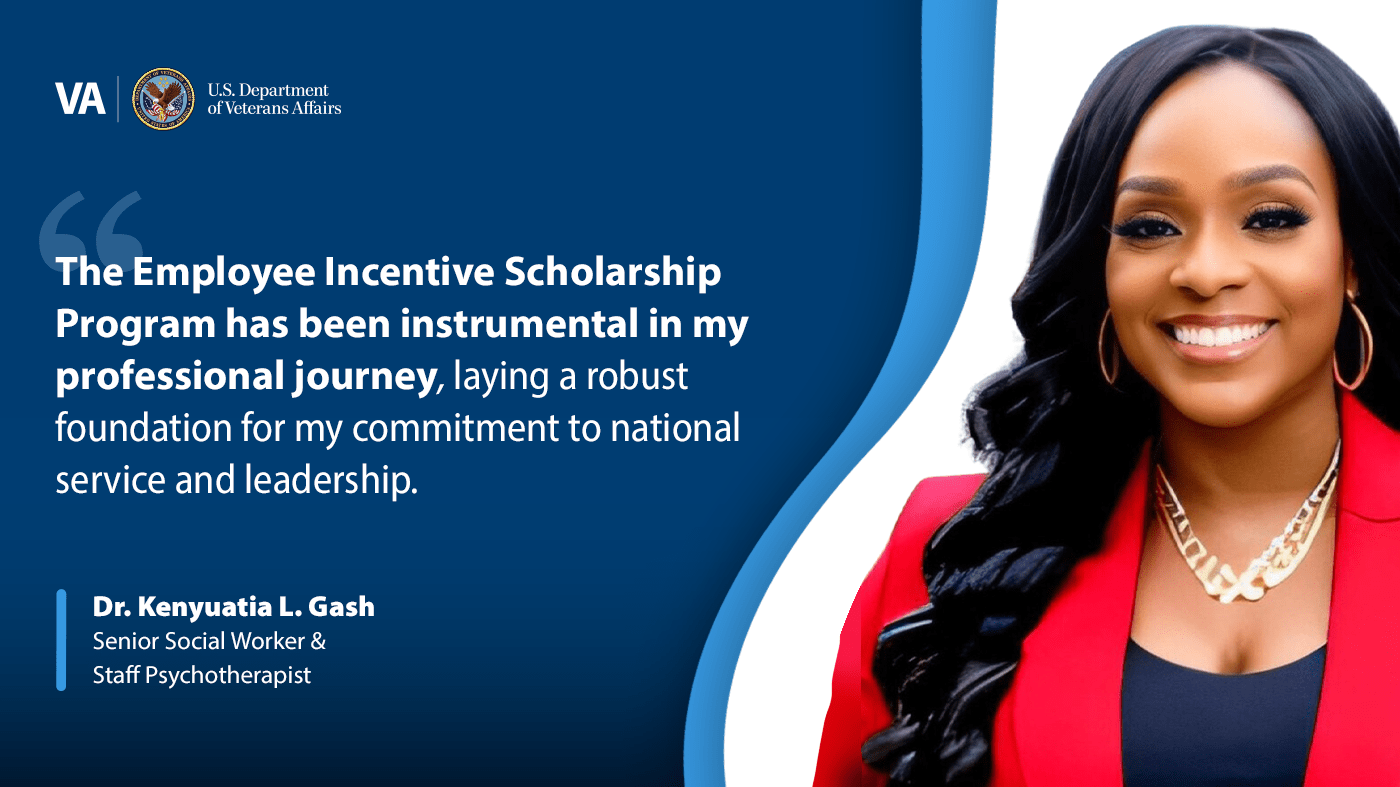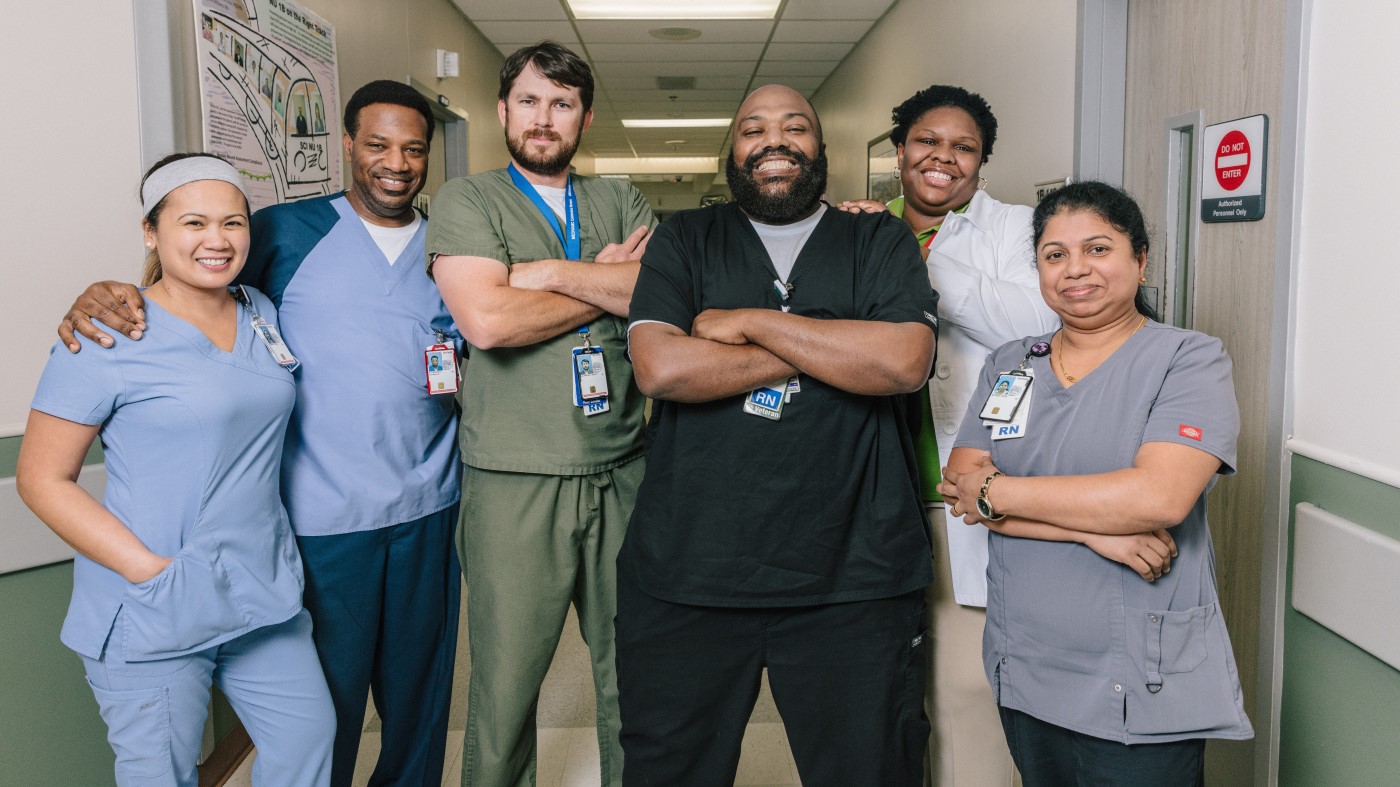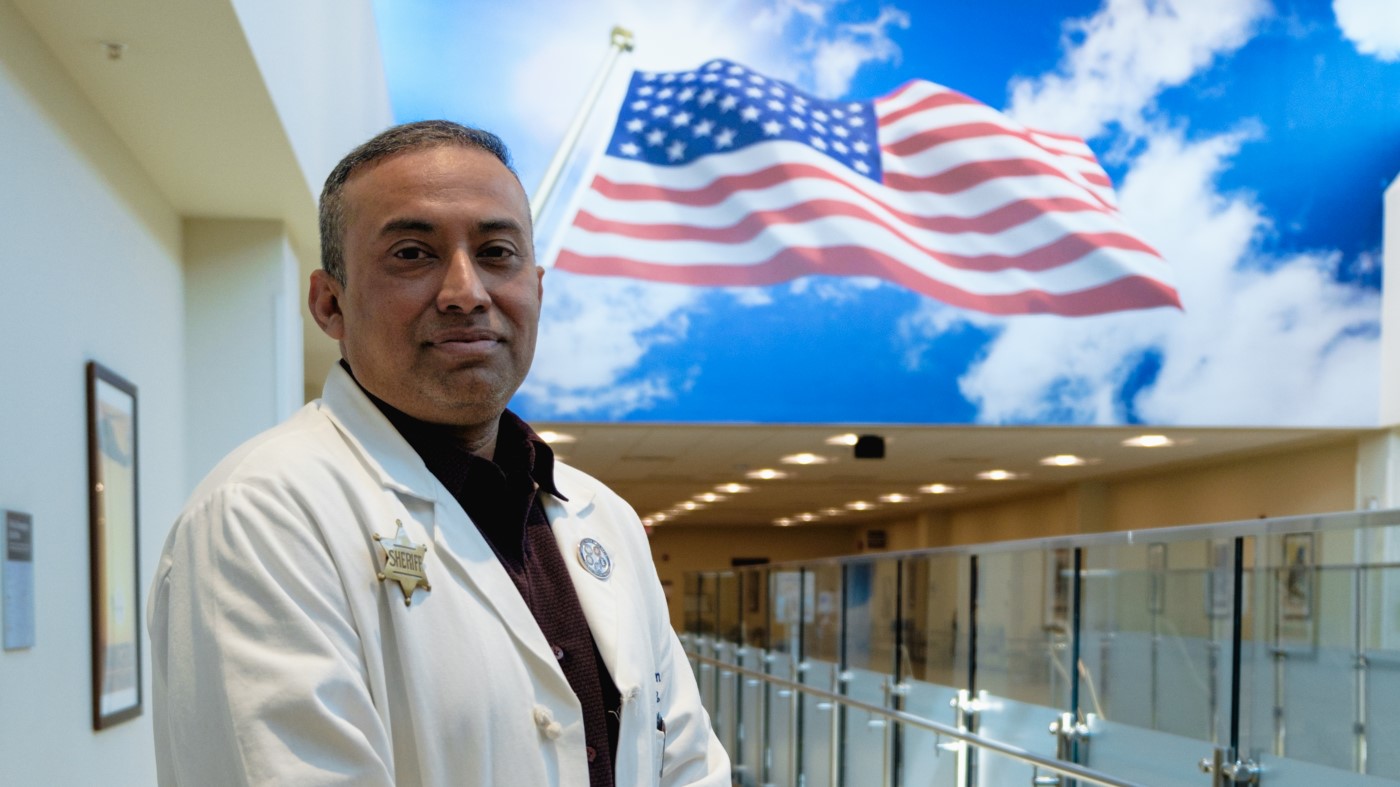Passion for serving Veterans. Support from colleagues. Opportunities to learn and advance in a career. For VA newbies Nicole Locker and Jennifer McFarland, these are among the most appealing aspects of their positions.
Mission aside, what makes a VA career different when you’re a military spouse is the sense of security that comes with knowing you will still have a job the next time you have to move. That’s because we appreciate the transient nature of military service and offer remote work options and many varied job opportunities across the country.
We understand that one of the challenges you face as a military spouse is frequent relocation and the impact it has on finding and maintaining permanent employment. Of the more than 600,000 military spouses worldwide who are actively seeking employment, 30% are unemployed and 56% are underemployed. Yet military spouses are well-educated and highly qualified for a wide range of careers.
Locker, now a vocational rehabilitation counselor with VA’s Veterans Benefits Administration (VBA), had shared her concerns about moving with a neighbor, a Veteran who also works at VA.
“I told her I was worried about finding a job when my active-duty husband gets orders to move for the military,” said Locker, who had been employed at a private university. “She was persistent in encouraging me to apply and apply and apply [to VA]. I finally completed the paperwork as a military spouse applicant and included supervisor experience I had gained from working in academia. I also mentioned how passionate I was about serving the military community, and somehow I got lucky and got my shot.”
McFarland, a Veterans Service Representative with VBA, was also concerned about job loss until she came to VA.
“As an active-duty spouse, the number one benefit is the job security,” McFarland said.
Other benefits Locker appreciates are the opportunities for professional growth and the collegial environment she works in, where a good portion of her team is either a Veteran or a military spouse.
“I’m now on a team of people with so much experience that you can get help at a moment’s notice if you need it,” said Locker. “There also are career growth opportunities and chances to find your specialty and grow more in that area, like supporting Veterans on campus or working on suicide prevention.”
The military spouse advantage
Both McFarland and Locker said their experiences as military spouses are invaluable in their VA careers. “Having the familiarity of military culture as a spouse helps me relate to the Veterans we serve,” said McFarland. “I feel like we are part of the same community, and Veterans sense the genuineness of my passion to help them as if they were my family.”
For Locker, being able to multitask and think on her feet are real career assets. “Adapt and overcome is the motto, right? We figure things out. We learn, we take notes, we ask questions – but we also understand chain of command and how to do that in a respectful way to be most effective,” she said. “While our family members are out deploying, we are managing the home front while also maintaining family responsibilities and our own career path and aspirations.”
A VA priority
Because we value military spouses, we make recruiting and hiring you a priority:
- We tag VA opportunities ideal for military spouses on USAJobs.
- We highlight key information – remote work opportunities, flexible work schedules, child care and health benefits – in our job announcements.
- We use noncompetitive procedures approved by the federal government for positions covered under Title 5 hiring authority. That means when you apply to become a VA accountant, police officer or human resource specialist and meet the minimum qualifications, you’re hired.
- We work with the Department of Defense to identify spouses with health care experience or training as a physician, nurse, social worker or occupational therapist. These positions do not require a USAJobs application.
Once you’re hired at VA, the sky’s the limit. Just read what Cheryl Mason, a former military spouse turned Veteran spouse, says of her experiences. Mason now oversees a staff of 1,200 lawyers, law judges, and operations and legal staff as Chairman of the VA Board of Veterans Appeals.
“There are an incredible number of paths to choose once you get your foot in the door,” McFarland continued. “I have seen numerous internal-to-agency-only job postings, which greatly improves our chances for new opportunities. I have only good things to say about my experience here so far. I look forward to learning more.”
Work at VA today
A career at VA relieved the job stress related to frequent moves for Locker and McFarland. See if a VA career is right for you, too.
- DISCOVER the benefits of a VA Career.
- ACCESS information about Veterans’ preference to speed the hiring process.
- EXPLORE career opportunities for military spouses.
Topics in this story
More Stories
Through programs like the Employee Incentive Scholarship Program (EISP), VA employees like Dr. Kenyuatia L. Gash have received financial support in pursuit of their education.
Providing better outcomes for diverse Veterans means finding ways to reach them, whether on a personal level or on a geographic level.
As a chief of staff, you’ll have many important responsibilities, but also an opportunity to make positive change for our team and the Veterans we serve.






